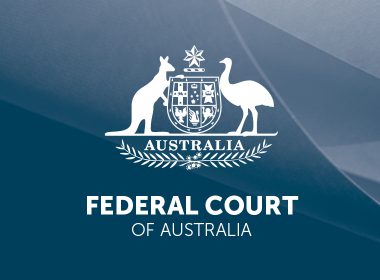Key decisions
- Australian Securities and Investments Commission v Web3 Ventures Pty Ltd (Penalty) [2024] FCA 578 (Denes Blazer)
- Cavar v Australian Unity Home Care Services Pty Ltd [2024] FCA 609 (Paris Hart)
CORPORATIONS
Civil penalty – whether to relieve defendant from liability – defendant contravened Corporations Act 2001, ss 601ED and 911A – investing customer funds in cryptocurrency.
Australian Securities and Investments Commission v Web3 Ventures Pty Ltd (Penalty) [2024] FCA 578 (Jackman J)
A company trading as Block Earner was held to have contravened:
- s 601ED(5) and (8) of the Corporations Act 2001 (Cth) – the civil penalty prohibition on operating an unregistered managed investment scheme; and
- s 911A(1) and (5B) of the Act – the civil penalty prohibition on carrying on a financial services business without an Australian Financial Services License (‘AFSL’),
with respect to one of its crypto currency related products (‘Earner’) for a period of about eight months between 17 March 2022 and 16 November 2022 (together, ‘Contraventions’).
In light of those Contraventions, the key issue in the case became whether Block Earner should be relieved of liability in respect of a pecuniary penalty order pursuant to s 1317S of the Act, which the Court ultimately granted.
In the decision, his Honour Jackman J provides a very helpful summary of the principles applicable to applications for relief pursuant to s 1317S, a provision which is routinely relied upon in regulatory proceedings.
Section 1317S of the Act
Section 1317S(2) of the Act provides as follows:
‘If:
(a) eligible proceedings are brought against a person; and
(b) in the proceedings it appears to the court that the person has, or may have, contravened a civil penalty provision but that:
(i) the person has acted honestly; and
(ii) having regard to all the circumstances of the case (including, where applicable, those connected with the person’s appointment as an officer, or employment as an employee, of a corporation or of a Part 5.7 body), the person ought fairly to be excused for the contravention;
the court may relieve the person either wholly or partly from a liability to which the person would otherwise be subject, or that might otherwise be imposed on the person, because of the contravention’.
Importantly, Jackman J confirmed that relief under s 1317S does not remove the breach itself, nor does it relieve the contravenor from the finding of contravention (at [5]). Rather, s 1317S operates as a dispensing power to excuse the contravener from the ‘liability’ resulting from orders after a finding of contravention (at [5]).
Further, relief under s 1317S may operate in respect of all or any of the orders which the court may make following a finding of contravention. Thus, the court may be prepared to grant relief from liability for a pecuniary penalty order, but still make declarations of contravention (at [5]).
The discretionary power to grant relief under s 1317S involves three stages of inquiry:
- first, whether the applicant for relief has acted honestly;
- secondly, whether, having regard to all the circumstances, the applicant ought to be fairly excused; and
- thirdly, whether the applicant should be relieved from liability wholly or in part and, if partly, to what extent (at [6]).
Acted honestly
Jackman J confirmed that the Court must be positively satisfied the applicant has acted honestly; a mere absence of dishonesty is insufficient (at [7]).
His Honour continued to state that a person acts honestly if the person’s conduct is without moral turpitude, that is: without deceit or conscious impropriety; without intent to gain an improper benefit or advantage; and without carelessness or imprudence that negates the performance of the duty in question (at [7]). As to the last of those matters (carelessness or imprudence) his Honour clarified that it should be understood as meaning ‘without carelessness or imprudence to such a degree as to demonstrate that no genuine attempt at all has been made to comply with the duty’ (at [7]).
The Court accepted that Block Earner acted honestly, particularly because the unchallenged evidence was that before the product was launched:
- its CEO had considered whether an AFSL was required, and concluded that one was not, and he did not intend nor understand that the product was a managed investment scheme;
- its CEO met with Block Earner’s Head of Risk and Compliance and together they were satisfied the product met Block Earner’s ‘risk appetite’ – which consisted of a zero appetite for breaches of laws and regulations;
- Block Earner concluded there was no identified risk of it breaching any laws or regulations by implementing the Earner product; and
- Block Earner received legal advice from Gilbert & Tobin in relation to its relevant products before they were launched. Interestingly, the substance of that legal advice was not disclosed to the Court, as Block Earner maintained a legal professional privilege claim in respect of it (at [7]-[12] and [33]).
Fairly be excused
This question must be addressed ‘having regard to all the circumstances of the case’ and it is capable of incorporating ‘reasonableness’ as a consideration (at [13]). In that regard, Jackman J stated that before ‘engaging in conduct in an area where the law is complex or otherwise uncertain, a person who is acting responsibly will consult a member of that professional class of lawyers to ascertain where he or she stands’ (at [38]).
He continued to state:
‘[S]ubject to the circumstances of the particular case, a person who perceives there to be legal uncertainty in a proposed course of conduct, who then obtains legal advice from a person who is qualified to give it competently, and who then genuinely concludes that there is no identified risk of breaching the law, ought fairly to be excused from liability for a civil pecuniary penalty for later engaging in that conduct and thereby breaching the law, at least in circumstances where the person does not thereby derive a substantial profit or cause substantial harm’ (at [39]).
‘[However, that] general proposition … will not be applicable merely because the defendant asserts that it concluded, after receiving competent legal advice, that there was no identified risk of breaching the law. The more unreasonable the conclusion, the more will be required from the defendant’ (at [41]).
Jackman J also clarified that those general propositions did not apply to scenarios such as where legal advice leads the person to conclude that the conduct is probably lawful but that the question is finely balanced and carries a substantial risk of contravention; or where the person derives a substantial profit or causes substantial harm by virtue of the contravention (at [39]).
To what extent should relief from liability be granted?
The relevant considerations at this third stage merge to some extent with the considerations in the second stage (at [44]). General deterrence and the public interest are relevant factors at the third stage of deciding whether to grant relief from liability in whole or in part (at [44]). General deterrence must be weighed against hardship to the contravener.
As set out above, it may be that, in the Court’s discretion, only partial relief is granted under s 1317S; for example, by making declarations of contravention, but relieving the defendant from a liability to pay a pecuniary penalty in respect of the contravention.
Section 1317S operates as a dispensing power to excuse the contravener from the ‘liability’ resulting from orders, after a finding of contravention.
PRACTICE AND PROCEDURE
Proceeding alleges substantially same case as earlier proceeding settled by deed of release – deed of release contains binding promise not to pursue claims in this proceeding.
Cavar v Australian Unity Home Care Services Pty Ltd [2024] FCA 609 (Kennett J)
The Federal Court of Australia dismissed the originating application for summary judgement under r 26.01 of the Federal Court Rules 2011 (Cth) (‘FC Rules’).
Background
The respondent made a conditional offer of employment to the applicant to commence her employment in July 2021 but she never commenced as the respondent took the view that a condition of the offer was not satisfied.
The applicant brought proceedings against the respondent and sought damages under sections 82 and 236 of the Australian Consumer Law (‘ACL’) for misleading and deceptive conduct, common law damages for breach of contract and damages under the Fair Work Act 2009 (Cth) (at [2]).
The respondent made an application seeking summary judgment and striking out the statement of claim or, alternatively, an order for security of costs and that the proceeding be stayed until the applicant provides $35,000. The respondent also argued that the current proceedings involve issues which were resolved in the earlier proceedings between the parties and cannot be litigated again (at [3]).
The earlier proceedings
The Court considered the history of the proceedings between the parties. Kennett J noted the applicant commenced the first proceedings against the respondent on 30 September 2021. Those proceedings concerned the same issues as these proceedings: offer of employment and failure to provide employment. The applicant relied on allegations the respondent had engaged in misleading and deceptive conduct under sections 18 and 31 of the ACL, unfair practices, harassment, coercion and unconscionable conduct (at [5]).
A deed of release (‘deed’) was drafted by the respondent`s lawyers on 30 August 2022 and executed by the applicant. The respondent executed a counterpart of the deed on 31 August 2022. The deed provided (at [7]):
‘(c) By cl 3.1:
(a) Ms Cavar releases absolutely and forever discharges the Group from all Claims which Ms Cavar may have had, may now have or but for this deed, may have had at any future time against the Group.
(b) …
(c) Ms Cavar promises not to bring or commence or seek to enforce any Claims in any court, commission, tribunal, or body against the Group which Ms Cavar may have had, may now have or but for this deed, may have had at any future time against the Group.
(d) By cl 3.2, the respondent granted similar releases and acknowledged that the deed constituted full and final settlement of all claims which it might have against the applicant.’
The ‘Claims’ were defined in the deed ‘as all actions, applications, arbitrations, causes of action, complaints, costs, damages, debts due, demands, determinations, enquiries, judgements, liabilities, … whether directly or indirectly, from the Employment Contract, the Employment Offer, the Costs Order or the Proceedings …’ (at [7]).
The matter was listed for hearing before Cameron J on 1 September 2022. The respondent sought summary dismissal of the proceeding on the basis that the parties had compromised their dispute and reduced it to writing. The applicant contested the settlement and left the courtroom during the hearing of the application (at [8]). Cameron J relied on rule 13.06(1)(e) of the Federal Circuit and Family Court of Australia Rules (Division 2) (General Federal Law) Rules 2021 (Cth) (‘FCFCOA Rules’), which empowers the Court to deal with the proceedings ‘generally’ and granted the respondent’s summary dismissal application on the basis that the dispute was settled (at [9]).
On 28 October 2022 the applicant made an application under r 17.05(2)(a) of the FCFCOA Rules to set aside the orders made on 1 September 2022. On 5 December 2022, Cameron J heard that application. The applicant argued that the deed should not be treated as an effective compromise of the parties’ dispute as there was defect in the applicant’s execution of the deed and provided reasons why she had left the courtroom during the hearing. However, his Honour refused the application with costs (at [10]).
On 17 December 2022, the applicant filed an application for leave to appeal from the costs order made on 5 December 2022. The applicant also sought to challenge various orders made by Cameron J including the orders of 1 September 2022 and 5 December 2022. This application was determined by Rares J on 21 April 2023 and dismissed. Rares J explicitly found that ‘there was no doubt about the correctness of the orders made on 5 December 2022’ and that Cameron J was ‘able to act on the basis that he did in ordering summary judgment’ (at [11]).
Hearing of the interlocutory application and reasons for the dismissal
During the hearing of the application, the applicant interrupted the respondent`s oral submissions complaining they were irrelevant and left the courtroom indicating she intended to appeal. Kennette J continued the hearing under r 17.04(b) of the FC Rules in the applicant’s absence (at [13]). His Honour stated the deed involved a binding promise by the applicant not to pursue any ‘Claims’ against the respondent and operated as a release from liability in respect of such claims. The definition of ‘Claims’ also captured any actions arising from the circumstances in which the applicant was conditionally offered employment and not employed which were the issues sought to be resolved in the present proceedings. That was sufficient to establish the applicant had no ‘reasonable prospect of successfully prosecuting the proceeding’ under r 26.01(1)(a) of the FC Rules and s 31A(2)(b) of the Federal Court of Australia Act 1976 (Cth). His Honour further cited Burge v Commonwealth Bank of Australia (No 3) [2017] FCA 383 and held the proceedings were also an abuse of process pursuant to r 26.01(1)(d) of the FC Rules (at [14]).
His Honour expressed the judgments in the earlier proceedings did not directly engage ‘any of the preclusive doctrines of res judicata, issue estoppel or Anshun estoppel in respect of those issues’. However, those judgments stand in the way of any claim that the deed was not effective (at [15]). His Honour further held that the applicant ‘is estopped from re-agitating that issue’ as the terms of the deed stand insuperably against any reasonable prospect of the applicant succeeding in this case (at [16]). Subsequently, his Honour dismissed the proceedings and ordered the applicant pay the respondent’s costs (at [17]).




